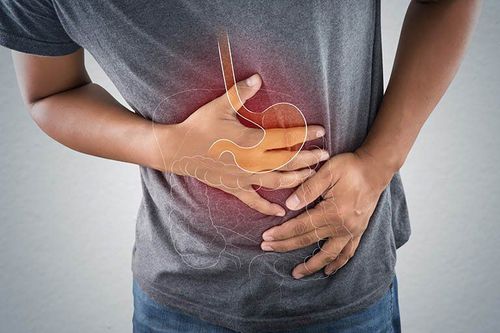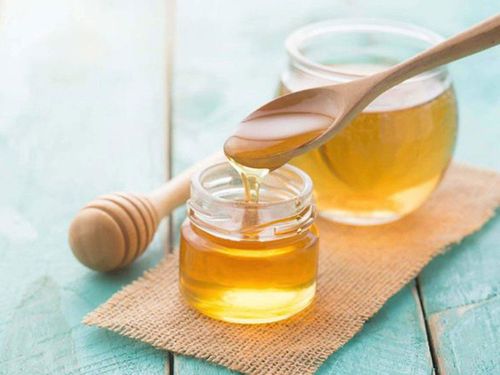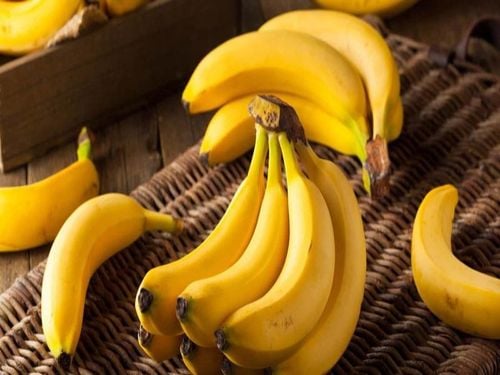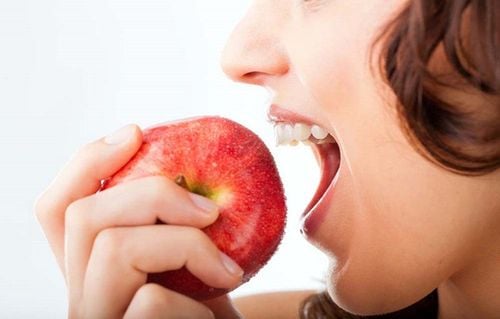What to eat to effectively kill Helicobacter pylori bacteria is a matter that many people are concerned about. Studies have shown that some foods contain natural compounds with strong antibacterial properties that help suppress Helicobacter pylori bacteria growth. Let's take a look at the article below to know what patients should eat when infected with Helicobacter pylori bacteria in the stomach.
This article was written under the professional guidance of doctors from the Department of Gastroenterology and Hepatobiliary - Vinmec International Hospital.
1. An overview about the degree of risk associated with Helicobacter pylori bacteria in the stomach
Before learning what to eat to kill Helicobacter pylori, it is essential to first comprehend the degree of danger posed by Helicobacter pylori bacteria in the stomach. Helicobacter pylori, first discovered in 1982, is a type of bacteria that mainly exists in the gastric environment.
Helicobacter pylori is the main cause of chronic diseases in the stomach, including gastric ulcers and gastric cancer. If not treated early, the patient's health can be seriously threatened by the complex complications caused by these bacteria.
Helicobacter pylori can be transmitted through many different ways. In addition to spreading directly from person to person through saliva during shared meals and living in the same environment, these bacteria can also enter the body through the digestive tract when consuming contaminated food and water.
Although the rate of Vietnamese people infected with Helicobacter pylori is up to more than 80%, most of them do not have any obvious symptoms. In most cases, patients only discover that they are infected with gastric Helicobacter pylori when they experience noticeable symptoms related to gastric ulcers or duodenal ulcers...
2. Common symptoms of gastrointestinal infection associated with Helicobacter pylori bacteria
The gastric mucosa will be attacked by Helicobacter pylori bacteria after infection, leading to severe damage such as inflammation, ulcers, bleeding, and infection. Below are some common symptoms associated with the presence of Helicobacter pylori bacteria in the body:
- Nausea and vomiting.
- Loss of appetite.
- Frequent belching.
- Experiencing abdominal distension as well as an enlarged, uncomfortable abdomen.
- Black stools, often a sign of gastrointestinal bleeding.
- Unexplained weight loss.
- A feeling of pain or burning in the abdomen, especially when the stomach is empty.
If patients have more serious symptoms like shortness of breath, vomiting blood, unusual fatigue, persistent or intense abdominal pain, bloody stools or black stools, or pallor of the skin and mucous membranes, they need to see a doctor for immediate examination. These symptoms can be signs of serious complications that require urgent medical intervention. So, what should patients eat to kill Helicobacter pylori bacteria?
3. Which foods are effective in eliminating Helicobacter pylori?
Diet and food intake can have an impact on gut microbiota and digestive function. Studies show that some foods contain many active compounds that can kill Helicobacter pylori bacteria, which helps with the efficient treatment of digestive disorders. So, what can patients eat to kill Helicobacter pylori bacteria in the stomach?
3.1. Vegetables and Fruits
This food group contains many vitamins, minerals and antioxidants, helping to repair damage, protect the gastric mucosa, and inhibit bacterial growth. In addition, vegetables and fruits also contribute to significantly improving the functioning of the digestive system and enhancing the body's immunity. Therefore, people infected with Helicobacter pylori bacteria should eat a lot of vegetables and fruits that do not contain much acid, such as apples, strawberries, cherries, blueberries, raspberries, etc.
Berries contain many antioxidants, such as resveratrol, ellagic acid, etc. These compounds control free radicals, reducing the activity and proliferation of Helicobacter pylori bacteria, and have a positive anti-inflammatory effect.
In addition, people infected with Helicobacter pylori should increase their intake of vegetables such as broccoli, cauliflower, and cabbage, because they contain isothiocyanates, a compound that can fight Helicobacter pylori, helping to limit the growth of this bacteria in the gastrointestinal tract and prevent cancer. Moreover, these vegetables are easy to digest and can help reduce stomach pain during treatment. Therefore, people infected with Helicobacter pylori are encouraged to eat at least 70g of broccoli per day.
3.2. Probiotic-rich foods
The human gastrointestinal system hosts a diverse microbiota, of which probiotics account for more than 85%. These probiotics have the ability to inhibit the growth of harmful bacteria, including gastric Helicobacter pylori. These beneficial bacteria produce lactic acid, hydrogen peroxide, and other antibacterial compounds, reducing the number of harmful bacteria. Therefore, probiotic supplements are essential considerations when addressing the question of what to consume to eradicate Helicobacter pylori.
To improve digestive health, patients can increase the amount of probiotics by using probiotic products or supplementing foods that are rich in probiotics and good for the digestive system, such as: yogurt, miso, kimchi, pickled cabbage, kombucha, certain varieties of cheese,... The combination of these foods not only aids in the management of Helicobacter pylori infection but also alleviates uncomfortable symptoms such as bloating, flatulence, diarrhea,...
Many people are concerned that fermented foods such as pickles and kimchi may not be suitable for those with gastric disorders, as they may make ulcers worse. However, studies have shown that these foods can actively support the treatment of Helicobacter pylori infections and prevent reinfection after treatment.
For patients with Helicobacter pylori ulcers who are taking antibiotics, daily probiotic supplementation may be considered to enhance treatment effectiveness and reduce antibiotic side effects. However, patients should consult their doctor to choose the right foods and probiotics for their health condition.
3.3. Green tea and honey
Furthermore, green tea and honey are two beverages that are high in antioxidants and have strong antibacterial properties. Green tea contains polyphenols, which help fight oxidative stress and aid in the elimination of bacteria such as H. pylori, Candida albicans, E. coli, Staphylococcus aureus...
A study conducted in May 2015 showed that people who drank green tea and honey once daily for a week had a lower rate of positive gastric Helicobacter pylori bacteria than those who did not.
3.4. Foods that are high in polyunsaturated fats
To enhance the effectiveness of killing Helicobacter pylori bacteria in the stomach, patients should focus on supplementing foods rich in healthy fats, especially polyunsaturated fats omega-3 and omega-6, such as:
- Virgin olive oil, canola oil and sunflower oil.
- Fatty fish such as mackerel, salmon and tuna.
- Nutritious nuts like chia seeds, walnuts, almonds and sunflower seeds.
These foods are essential answers to the question of what to eat in order to get rid of Helicobacter pylori bacteria, aid in the restoration of the gastric mucosa, and reduce the risk of developing gastric and duodenal ulcers. In addition, polyunsaturated fats are not only beneficial for cardiovascular health but also possess anti-inflammatory properties and alleviate unpleasant symptoms related to arthritis.
4. What should individuals infected with Helicobacter pylori avoid consuming?
In addition to understanding which foods can help eradicate Helicobacter pylori in the stomach, patients need to know which foods should be avoided or consumed in excess to limit the growth of Helicobacter pylori and avoid dangerous complications related to this disease. Below is a list of foods to avoid:
- Foods that are high in caffeine: such as chocolate, coffee, and black tea, should be limited because they can irritate the gastric mucosa, leading to a burning sensation and discomfort.
- High-acid fruits: fruits such as oranges, lemons, and pineapples contain a lot of acid that can increase gastric acid, thereby increasing the risk of gastric ulcers.
- Spicy foods: spicy foods can increase the risk of gastric ulcers, impair digestive processes, increase the production of gastric acid, and create a favorable environment for Helicobacter pylori bacteria.
- Salty foods containing sodium: because salty foods change the properties of the mucous membrane that protects the stomach, Helicobacter pylori bacteria can easily penetrate the mucosal layer in the stomach.
- Alcoholic beverages: beer and other alcoholic beverages can directly damage the stomach, causing ulcers to spread and increasing the risk of gastric cancer.
- Fried foods with a high oil content: oily foods, particularly fried items, can hinder the digestive process, causing the stomach to overwork, leading to bloating, flatulence, indigestion and affecting the recovery process of the gastric mucosa.
- Processed and canned foods: these products often contain many preservatives and chemical additives that can irritate the stomach and intestines, exacerbating inflammation.
The article above has provided useful information to help patients better understand the issue of what to eat to get rid of Helicobacter pylori bacteria, as well as the appropriate diet to control and eradicate Helicobacter pylori bacteria in the stomach. To limit growth, eradicate bacteria, and prevent serious complications such as gastric ulcers or cancer, patients need to establish and adhere to a healthy diet.
Please dial HOTLINE for more information or register for an appointment HERE. Download MyVinmec app to make appointments faster and to manage your bookings easily.













